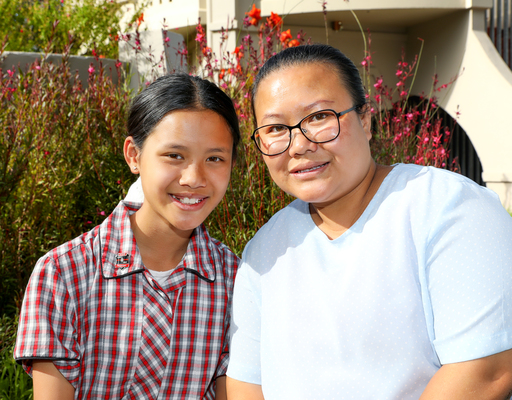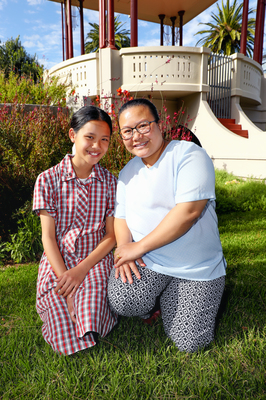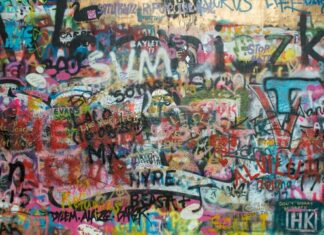Karenni woman Chrimoo Yohellaymusaw is one of thousands of refugees making up the rich multicultural fabric of Geelong.
Ahead of Harmony Day, she spoke to Luke Voogt about fleeing Burmese soldiers through mountainous jungles, followed by 18 years in a refugee camp.
Chrimoo Yohellaymusaw was just seven-years-old when she saw Burmese soldiers shoot and burn people in her hometown of Loikaw, eastern Myanmar, in 1988.
“When I saw that I just ran back to my home,” said the Myanmar refugee, from the country’s Karenni ethnic minority.
That night, her father left to join the Karenni Army to fight against the then Burmese government’s persecution of ethnic minorities.
His fight for independence would force him into hiding.
In the following two years Chrimoo looked after her little sister and cooked as her mother carried coal from a nearby mine to support the family.
“Mum had to carry it on her head all the way to the Thai border,” she said.
“I remember when my mum would return she would bring me a lolly and I was so happy.”
She remembered living in fear that bandits could break into their home to steal their meagre food supplies or that Burmese soldiers could accuse her mum being a Karenni spy.
As things worsened Chrimoo’s aunt and uncle urged her mum to flee.
“They said to my mother, ‘you are not safe here anymore’,” she said.
At age nine, Chrimoo and her family fled with a few others, hiding in jungle and avoiding roads and towns to steer clear of soldiers, while traversing mountainous terrain.
Her terrified mother and the other adults would take turns taking watch at night as Chrimoo and her sister slept soundly, she said.
After several days’ travel, including a river crossing, they would eventually reach a refugee camp on the Thai border in 1991.
There, Chrimoo helped build the family home out of bamboo and leaves and, months later, reunited with her father.
Her mum would work on a farm harvesting peas for 30 Thai Baht a day, about $1.50 Australian in 1991.
For the next 18 years she would live on a basic diet of mostly rice, sometimes with vegetables or chicken powder, spending only on absolute necessities.
“For me it didn’t feel that hard but now I think about it, it was a hard life,” she said.
School at the refugee camp was a whiteboard under a tree, with children using charcoal to take notes, she remembered.
Later, in a leadership school at the camp, she met her “tall” future husband Sawkoo.
“At first I didn’t think I was going to marry him,” she said.
“People said that he really was a playboy.”
But persistence paid off for Sawkoo, who wrote to Chrimoo as often as possible after he, like her father, joined a revolutionary army.
“He started to chase me and tried to really understand me,” she said.
Sawkoo was from the Karen ethnic minority, which, like the Karenni people, were fighting government persecution.
In 2006 Chrimoo applied for refugee status with the United Nations.
She wanted to live in Australia due to its proximity to Asia and it being a “warm country”, she said.
With little knowledge of the outside world, she thought the food would be the same, she said, laughing.
“We thought white men would be nice and kind,” she added, based on her interactions with English, American and Norwegian teachers at the leadership school.
When her husband returned from civil war he joined the Karenni camp just when the application was about to be approved.
But due to him being a new person in the camp, their application was rejected, with Chrimoo pregnant.
“We [were] really excited, my tummy was very big,” she said.
“I did not let him go anymore to the army. I just got him to stay home. I [thought] that if [I’m going to have] children I need to have a better life for [them].”
The rejection delayed their application by several months and Chrimoo had to reapply after giving birth to her first child, delaying them another few months.
Finally, in 2009, they arrived in Australia and settled in Geelong.
“When I arrived, I didn’t know anything,” Chrimoo said.
“When new arrivals come here, they don’t know the language, so it’s very important they get help from someone.”
Now in her 40s, Chrimoo is a proud Norlane resident, working in education support at North Geelong Secondary College and bilingual programs at Diversitat.
“People say that Norlane is not safe or Corio is not safe. But for me it is safe,” she said.
In her spare time, she helps new families access services and assists high school students to find employment pathways after graduation.
Her mother came to Australia while her father, retired from soldiering, lives in a Thai village.
Her daughter Hteemoo and son Truewin, who attend school locally, teach her as much about her new homeland as she teaches them.
“Already they say my English is not good,” she laughed.
Chrimoo is active in her Baptist church community and enjoys marking life moments with friends and family, such as weddings and the annual “festival of harvest” or Kay Toe Boe.
About 300 Karen and Karenni families – roughly 1000 residents in total – live in the Geelong region, according to Chrimoo.
“We’re a very united and connected community,” she said.
“Geelong has very supportive, understanding and caring people. Everything is good here.”










